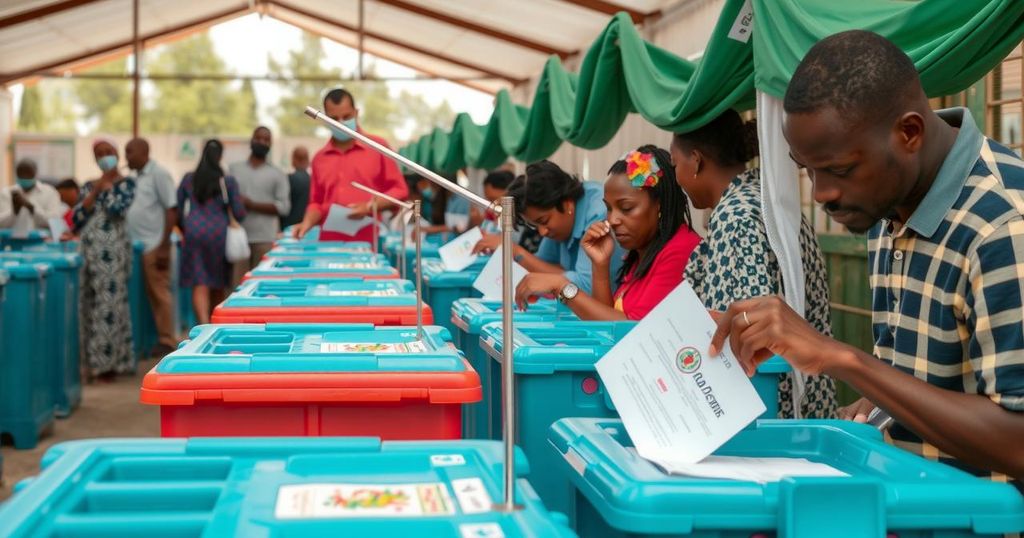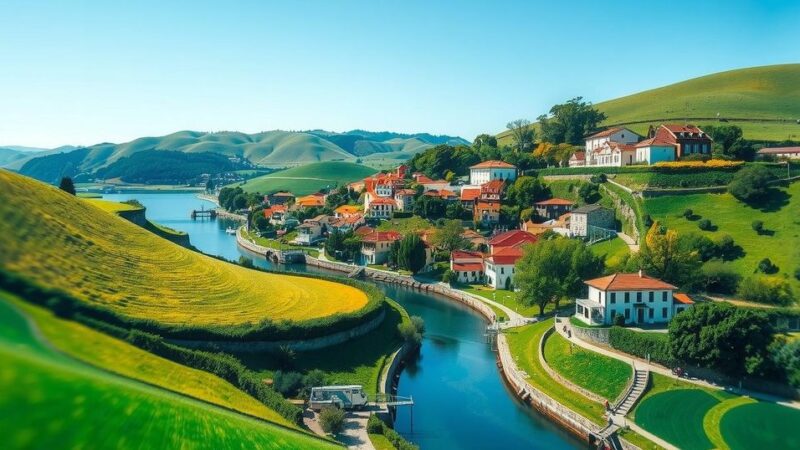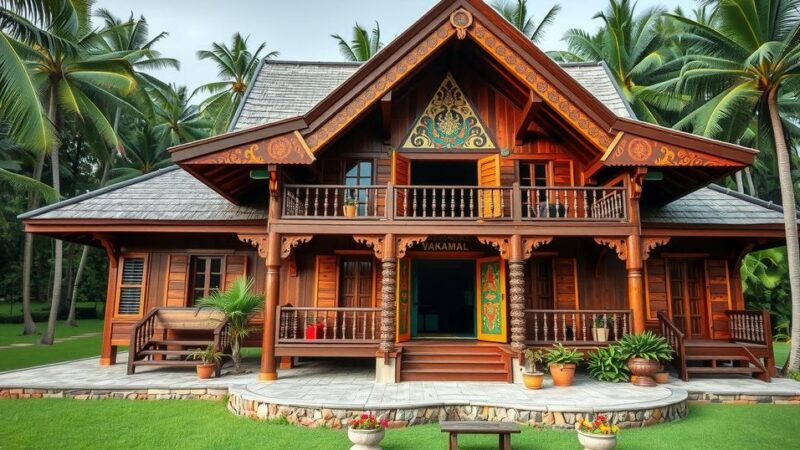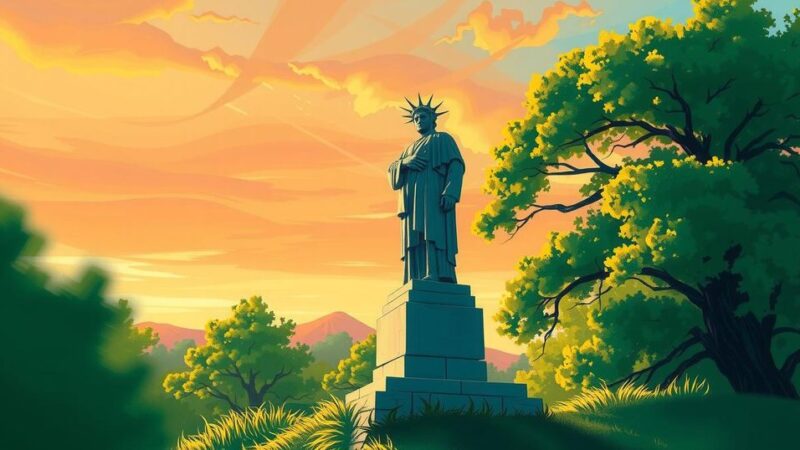Ghana has begun its elections to evaluate its democratic stability amid economic crises, with early results expected soon. Vice President Bawumia and former President Mahama are contesting in a pivotal race influenced by voter demographics. The government has enacted border closures to protect the vote amidst regional security concerns, reflecting the critical nature of this electoral event.
Ghana has commenced its general elections, a pivotal moment that will assess the nation’s democratic stability amidst considerable economic challenges. Polls opened at 7 a.m. GMT on Saturday and will conclude at 5 p.m. GMT, with early results anticipated on Sunday. The presidential race is particularly competitive, focusing on Vice President and former central banker Mahamudu Bawumia, who represents the ruling New Patriotic Party (NPP), and opposition candidate John Mahama, a former president from the National Democratic Congress (NDC).
This election marks a significant departure from previous ones, with a heightened focus on voters from the historically disadvantaged northern regions, which could influence the outcome more than the southern constituencies that traditionally held sway. Approximately 18.8 million individuals are registered to vote in a population of 34 million, with a historic turnout rate of around 70%.
Additionally, the Ghanaian government has taken precautionary measures by closing all land borders from Friday through Sunday to safeguard the electoral integrity, as concerns of conflict spillover from adjacent regions like Niger and Burkina Faso loom.
Both main candidates face scrutiny over Ghana’s flagging economy, which has endured a debt default and soaring inflation. Despite the challenges, Bawumia remains optimistic, promising to enhance digitalization and uphold programs focused on education and healthcare, stating, “Give me the chance to transform this nation.”
Conversely, Mahama calls for a revival of the economy with a pledge to implement a “24-hour economy” for extended industrial hours to promote job creation. He has framed his campaign as a needed reset for the nation. The upcoming parliamentary election complements the presidential vote, demonstrating a critical juncture for Ghana, often hailed as a bastion of democracy in West Africa.
Ghana’s political landscape has been historically stable, characterized by alternating leadership between the NPP and NDC since 1992. The nation is currently navigating a turbulent economic period, marked by issues such as high inflation and a debt default that have dominated the electoral discourse. In recent years, the integrity of governance has been scrutinized due to the prevalence of illegal gold mining, a pressing concern in current campaigns. This election is particularly crucial as it represents the first post-incumbency leadership transition since President Nana Akufo-Addo is stepping down after two consecutive terms.
In conclusion, the ongoing elections in Ghana are a critical evaluation of the nation’s democratic resilience in a challenging economic landscape. Both leading candidates, Bawumia and Mahama, present contrasting visions for the future, emphasizing the need for economic revitalization and stability. With potential implications from regional unrest and internal economic struggles, the outcome of this election may set a significant precedent for Ghana’s political future.
Original Source: www.aljazeera.com







